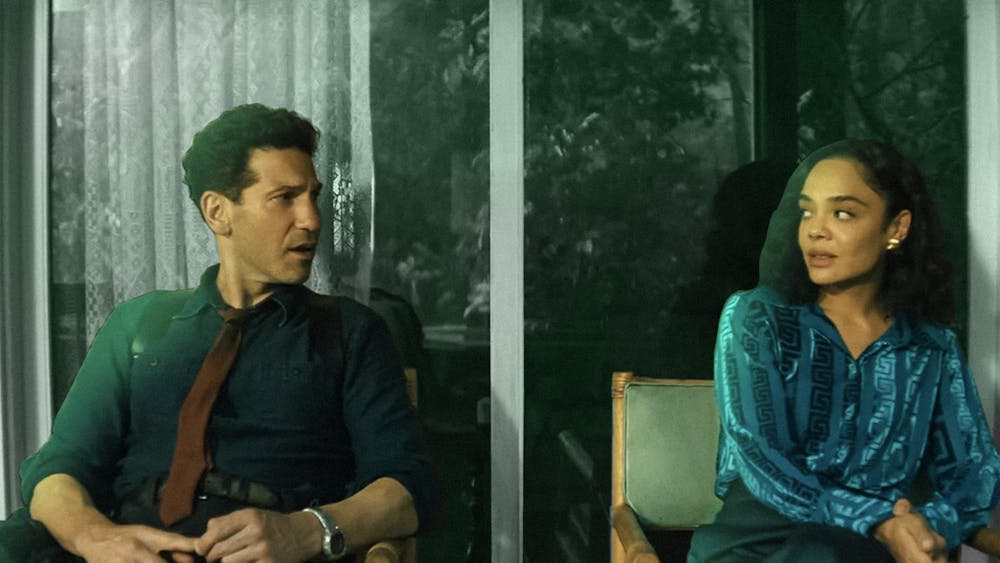
The commedia dell’arte is a traditional 16th century form of professional Italian theater characterized by sketches or scenarios that feature a small list of archetypal characters meant to instill the seriousness of certain lessons. Moliére’s “The Imaginary Invalid,” originally a late-1600s comedy-ballet, made use of these well-known characters. By the time Notre Dame’s Film, Television and Theatre Department got a hold on it, its many farcical permutations were quite clear.
There is a fine line between so absurd that the audience is distanced and an absurdity that brings the audience to tears with its laughter. This is a line that “Invalid” played perfectly. From the first, interactive, moments of the play to its extravagant musical numbers, “Invalid” engaged and tickled. Senior Zoë Usowski’s performance as Toinette, the grounding Columbina maid “maschera,” was inspired in its frustrated comedy and moving in its expression of her genuine care for Angelique, played by junior Savanna Morgan. Usowski’s grasp of the action was complete, to say nothing of her consistent physicality and timing. As the only character with any real intelligence, a distinctive part of the commedia design, Toinette took the lead in establishing the tone in many of the scenes.
To start the show, the cast chanted “if it ducks then it’s a quack.” These words together with the precision of the actors’ motions clued the audience into the importance of movement and voice in the definition and development of character. This focusing element brought relief to the riotous physical comedy as well as the sharp verbal comedy, such as “his mastery of the language overwhelms him at times,” a line Dr. Purgeon, played by graduate student George Azcárate, speaks of his fowl-nephew Claude de Aria, freshman James Cullinane. Shortly following his sexually-charged eloquence, Angelique rejects him, leading to a rather pleasantly uncomfortable outburst of clucking and strutting. The connection between language, sexuality, and “the overwhelming” is clear.
The cast handled the complex physical and comedic action of the play with deft and delicious buffoonery. They played well off one another with something near, but not quite, perfection. There were moments when the timing stumbled and some lines appeared to falter, but for the most part it was hard to differentiate the fumbling idiocy from something that might have been theatrical error — a pleasant mistake to be making.
Though the commedia elements were apparent, the pop culture references and comedic flare of “Invalid” place it firmly in the realm of modern absurdity. Argan, senior R. Tyrel London, discovers the unconditional love of his daughter Angelique and the, admittedly strange, devotion of his servant Toinette. His hypochondriasis fades slightly and he finds himself a doctor. The newly minted medical doctor, or artist as the show states in the pre-show interaction, Argan and the cast chant the words “Memento Mori.” The crippling, although most definitely exaggerated, anxiety he’d expressed over his physical well-being and death is gone. In remembering love and death, he arrives at the show’s conclusion — don’t take life too seriously. All is well.
The ridiculousness that had just occurred is trumped by the gaudy foolishness of the closing musical number and the audience leaves cackling, then chuckling then finally humming that remembrance, “Memento Mori.” It’s a farcical moral, but an important one.
As Beline, senior Maggie Behan, says to Argan, “It’s just mortality, baby.”
'The Imaginary Invalid' is farcical and fun
Joseph Han
Joseph Han









